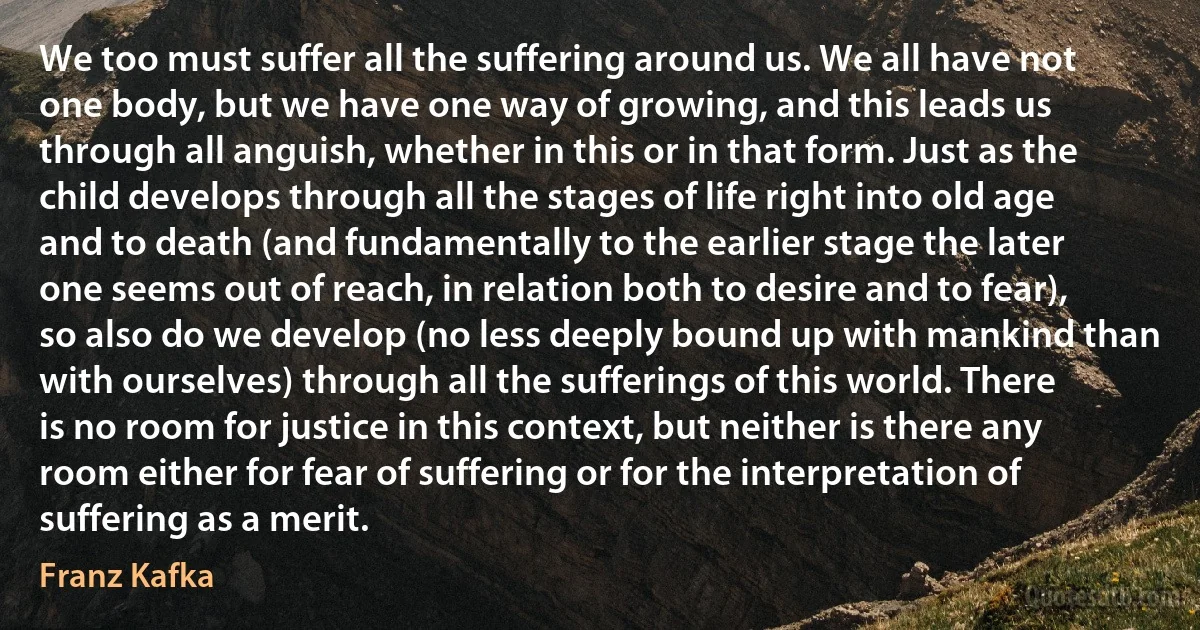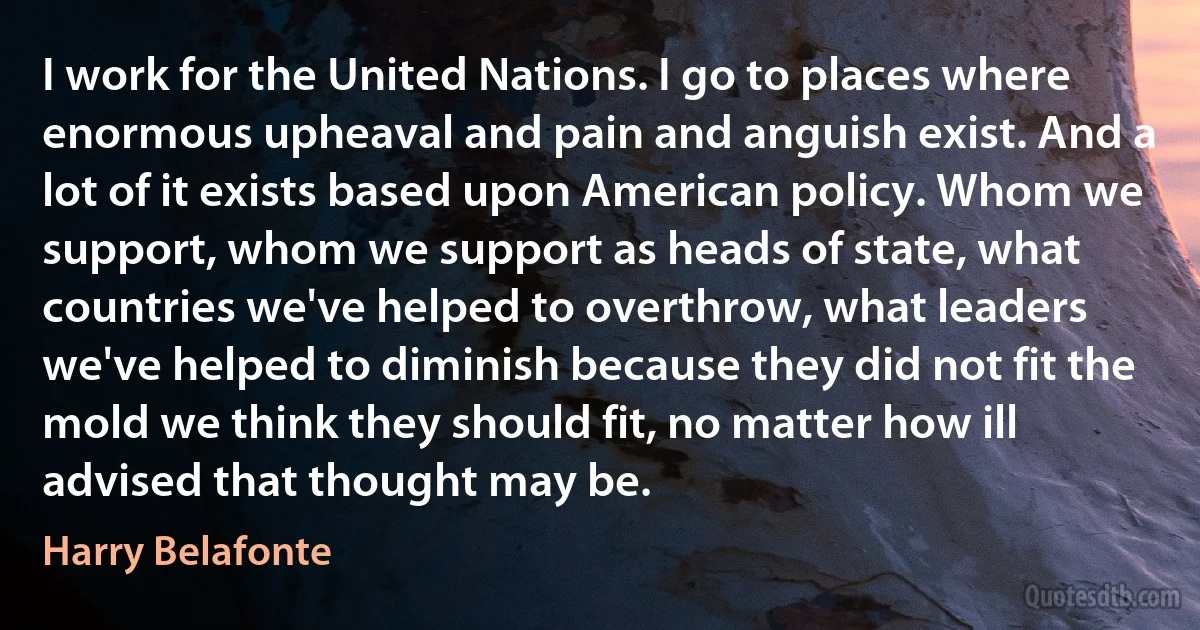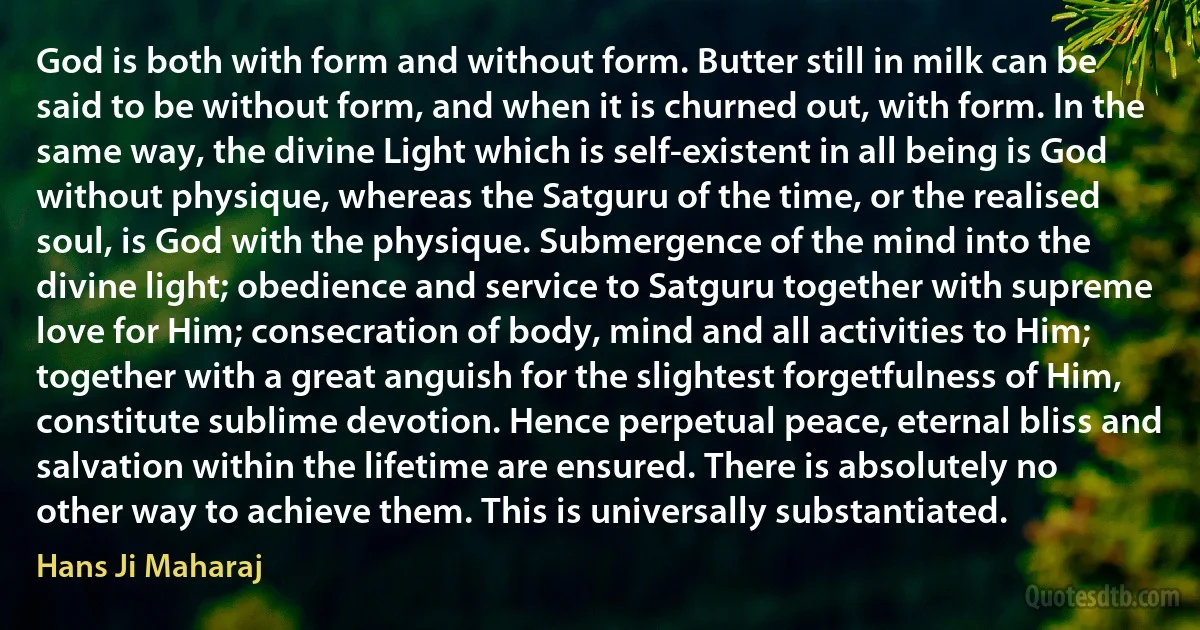Anguish Quotes - page 11
I feel how weak and fruitless must be any words of mine which should attempt to beguile you from the grief of a loss so overwhelming. But I cannot refrain from tendering to you the consolation that may be found in the thanks of the Republic they died to save. I pray that our Heavenly Father may assuage the anguish of your bereavement, and leave you only the cherished memory of the loved and lost, and the solemn pride that must be yours, to have laid so costly a sacrifice upon the altar of Freedom.

Abraham Lincoln
Dear Madam, I have been shown in the files of the War Department a Statement of the Adjutant General of Massachusetts, that you are the mother of five sons who have died gloriously on the field of battle. I feel how weak and fruitless must be any words of mine which should attempt to beguile you from the grief of a loss so overwhelming. But I cannot refrain from tendering to you the consolation that may be found in the thanks of the Republic they died to save. I pray that our Heavenly Father may assuage the anguish of your bereavement, and leave you only the cherished memory of the loved and lost, and the solemn pride that must be yours, to have laid so costly a sacrifice upon the altar of Freedom. Yours, very sincerely and respectfully, President Abraham Lincoln.

Abraham Lincoln
Christians and Muslims, we have many things in common, as believers and as human beings. We live in the same world, marked by many signs of hope, but also by multiple signs of anguish. For us, Abraham is a very model of faith in God, of submission to his will and of confidence in his goodness. We believe in the same God, the one God, the living God, the God who created the world and brings his creatures to their perfection.

Pope John Paul II
During those challenging times, I often recollected the wisdom in our scriptures; explaining how those sitting in positions of power did not have the right to share their own pain and anguish. They had to suffer it in solitude. I lived through the same, experiencing this anguish in searingly sharp intensity. In fact, whenever I remember those agonizing days, I have only one earnest prayer to God. That never again should such cruelly unfortunate days come in the lives of any other person, society, state or nation.

Narendra Modi
I speak out of a deep sense of urgency about the anguish and anxiety I have seen across America. I speak out of a deep belief in the ideals of the Democratic Party, and in the potential of that party and of a president to make a difference. I speak out of a deep trust in our capacity to proceed with boldness and a common vision that will feel and heal the suffer- the division of our party.

Ted Kennedy
This is the Supreme Duty of the man who struggles - to set out for the lofty peak which Christ, the first-born sone of salvation, attained. How can we begin?
If we are to follow him we must have a profound knowledge of his conflict, we must relive his anguish: his victory over the blossoming snares of the earth, his sacrifice of the great and small joys of men and his ascent from sacrifice to sacrifice, exploit to exploit, to martyrdom's summit, the Cross.

Nikos Kazantzakis
Toby-Dog: It seems to me that of the two of us it's you they make the most of, and yet you do all the grumbling.
Kiki-The-Demure: A dog's logic, that! The more one gives the more I demand.
Toby-Dog: That's wrong. It's indiscreet.
Kiki-The-Demure: Not at all. I have a right to everything.
Toby-Dog: To everything? And I?
Kiki-The-Demure: I don't imagine you lack anything, do you?
Toby-Dog: Ah, I don't know. Sometimes in my very happiest moments, I feel like crying. My eyes grow dim, my heart seems to choke me. I would like to be sure, in such times of anguish, that everybody loves me; that there is nowhere in the world a sad dog behind a closed door, that no evil will ever come...
Kiki-The-Demure: And then what dreadful thing happens?
Toby-Dog: You know very well! Inevitably, at that moment She appears, carrying a bottle with horrible yellow stuff floating in it - Castor Oil!

Colette
And I
in terror
but not in doubt of
what I must do
in anguish, in haste,
wrenched from the earth root after root,
the soil heaving and cracking, the moss tearing asunder -
and behind me the others: my brothers
forgotten since dawn. In the forest
they too had heard,
and were pulling their roots in pain
out of a thousand years' layers of dead leaves,
rolling the rocks away,
breaking themselves
out of
their depths.

Denise Levertov
O fathering friend and scientist of good,
Who in solitude, one bygone summer's day,
And in the throes of bodily anguish, passed away
From dream and conflict and research-lit lands
Of ethnological learning, - even as you stood
Selfless and ardent, resolute and gay,
So in this hour, in strange survival stands
Your ghost, whom I am powerless to repay.

Siegfried Sassoon
Once the curtain is raised, the actor ceases to belong to himself. He belongs to his character, to his author, to his public. He must do the impossible to identify himself with the first, not to betray the second, and not to disappoint the third. And to this end the actor must forget his personality and throw aside his joys and sorrows. He must present the public with the reality of a being who for him is only a fiction. With his own eyes, he must shed the tears of the other. With his own voice, he must groan the anguish of the other. His own heart beats as if it would burst, for it is the other's heart that beats in his heart. And when he retires from a tragic or dramatic scene, if he has properly rendered his character, he must be panting and exhausted.

Sarah Bernhardt
I was the quietest one./The voice with almost no echo./The conscience spread in a syllable of anguish,/scattered and tender, through all the silences...I was the quietest one./The one who leapt from earth with no more weapon than a verse./And here you see me, stars,/scattered and tender, with his love in my chest!

Julia de Burgos
Four hundred years ago, ships set sail from the west coast of Africa and in the process, began one of mankind's most inhumane practices: human bondage and slavery. For two centuries, human beings – full of hopes and fears, dreams and concerns, ambition and anguish – were transported onto ships like chattel, and the lives of many forever changed. The reverberations from this horrific series of acts – a transatlantic slave trade that touched the shores of a colony that came to be known as America, and later a democratic republic known as the United States of America – are unknown and worthy of exploration. Approximately 4,000,000 Africans and their descendants were enslaved in the United States and colonies that became the United States from 1619 to 1865.

Sheila Jackson Lee
A school of artistic experimentation is invented, which is said to be the definition of freedom; but this "experimentation” has its limits, imperceptible until there is a clash, that is, until the real problems of individual alienation arise. Meaningless anguish or vulgar amusement thus become convenient safety valves for human anxiety. The idea of using art as a weapon of protest is combated. Those who play by the rules of the game are showered with honors - such honors as a monkey might get for performing pirouettes. The condition is that one does not try to escape from the invisible cage.

Che Guevara
What would happen to us if we could truly sympathize with others, feel with them, suffer for them? The fact that human anguish, fear, and suffering melt away with the death of the individual, that nothing remains of the ascents, the declines, the orgasms, and the agonies, is a praiseworthy gift of evolution, which made us like the animals. If from every unfortunate, from every victim, there remained even a single atom of his feelings, if thus grew the inheritance of the generations, if even a spark could pass from man to man, the world would be full of raw, bowel-torn howling.

Stanisław Lem
Clemente was an emotional man, and that was his beauty. It drove him not only to physical anguish, but also to nearly incredible performances on the field as well as to the good work he was engaged in at his death. Often, although not so much in his maturing years, he seemed almost paranoid in his complaints against this or that, but when he said he loved mankind you had to believe him, because even the heat of his most bitter outburst almost always blew over, and where he had been loud, he would suddenly become reasonable and even eloquent. A man to confuse you? Yes, absolutely, but only because man's full range of passions ran strong in him. Cunning he was not. Honest he was. And the proof is that he was no honorary chairman of that relief committee for Nicaragua -- he was no figurehead chairman in name only; he was not merely a celebrity lending his prestige but not his heart or his labor to a cause. Honorary chairmen do not disappear into the Atlantic in the performance of duty.

Roberto Clemente



